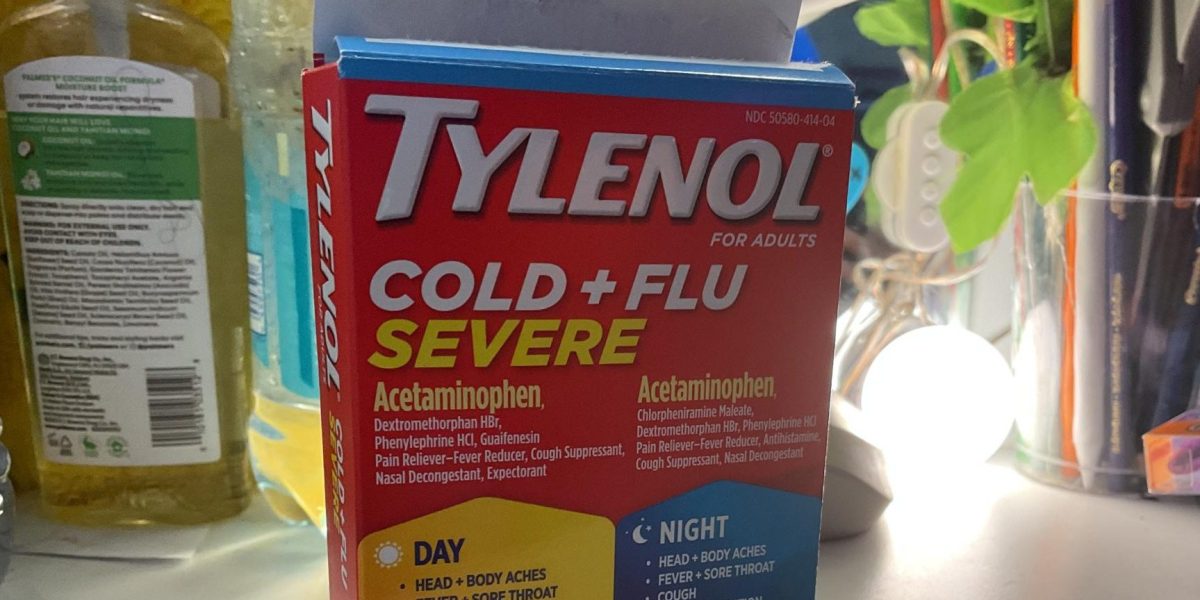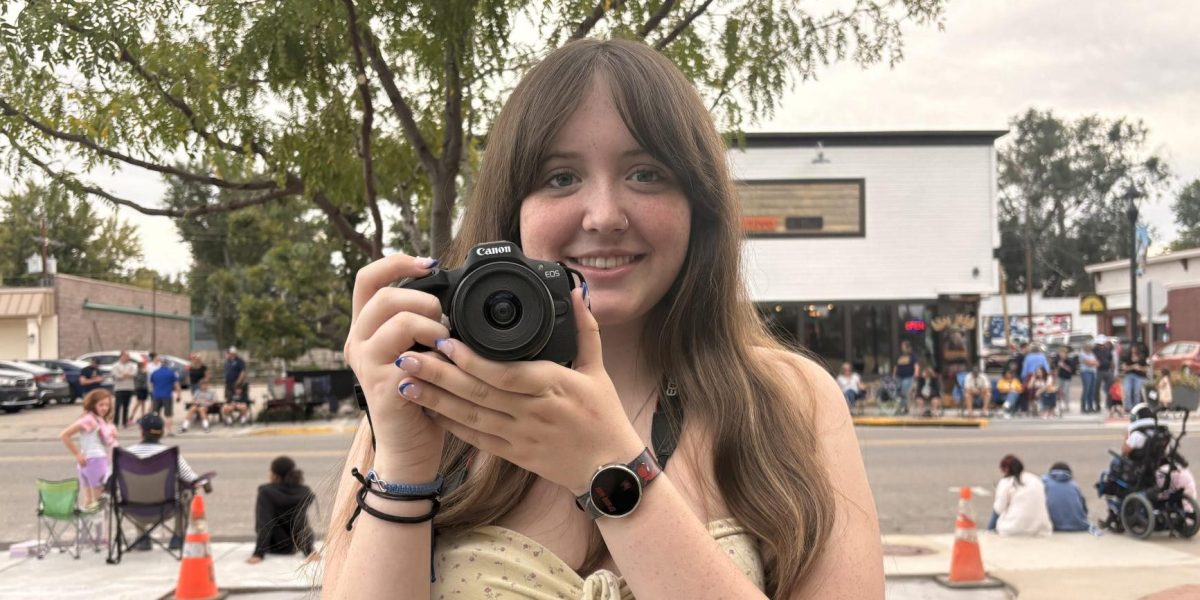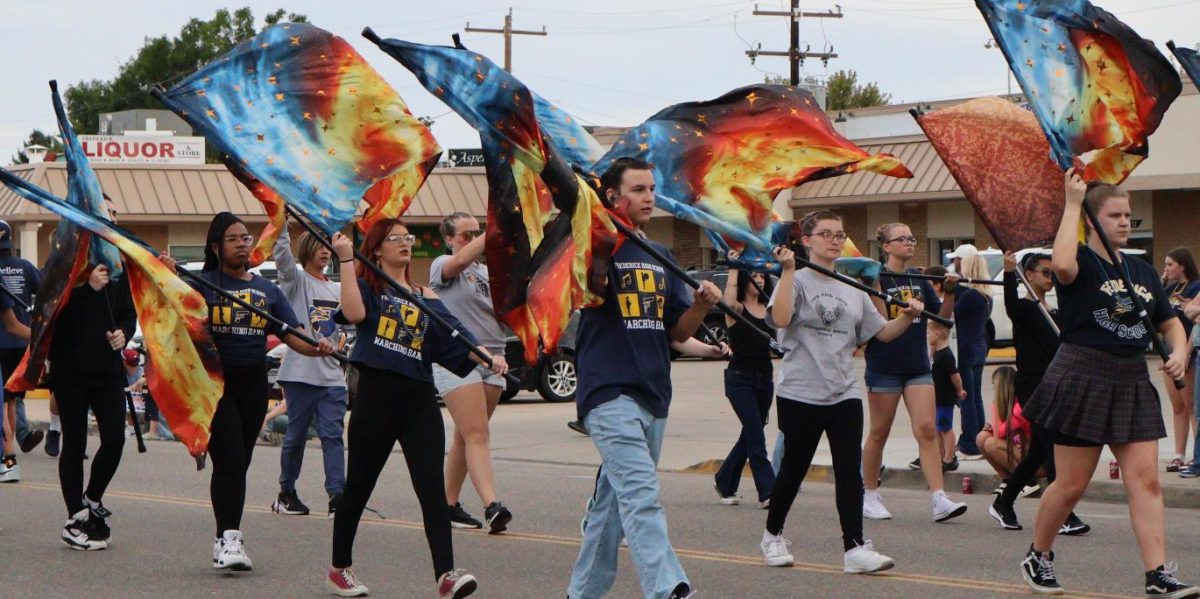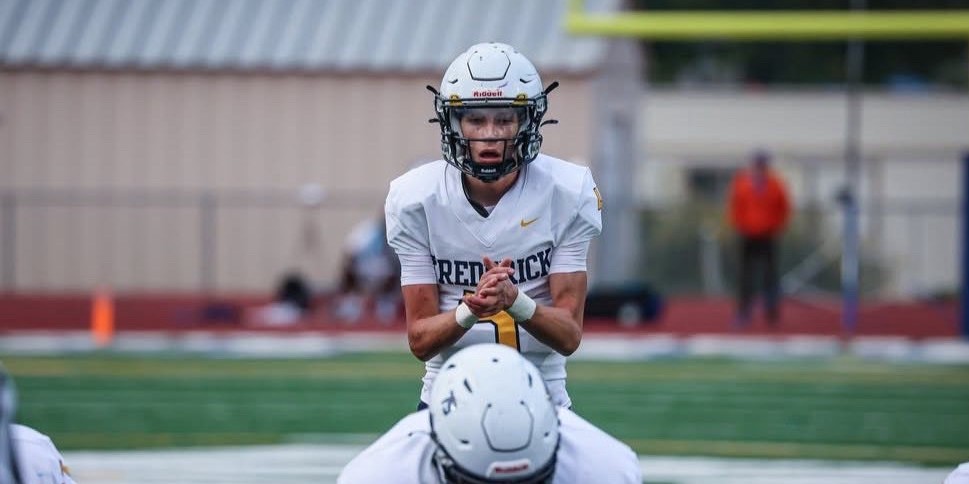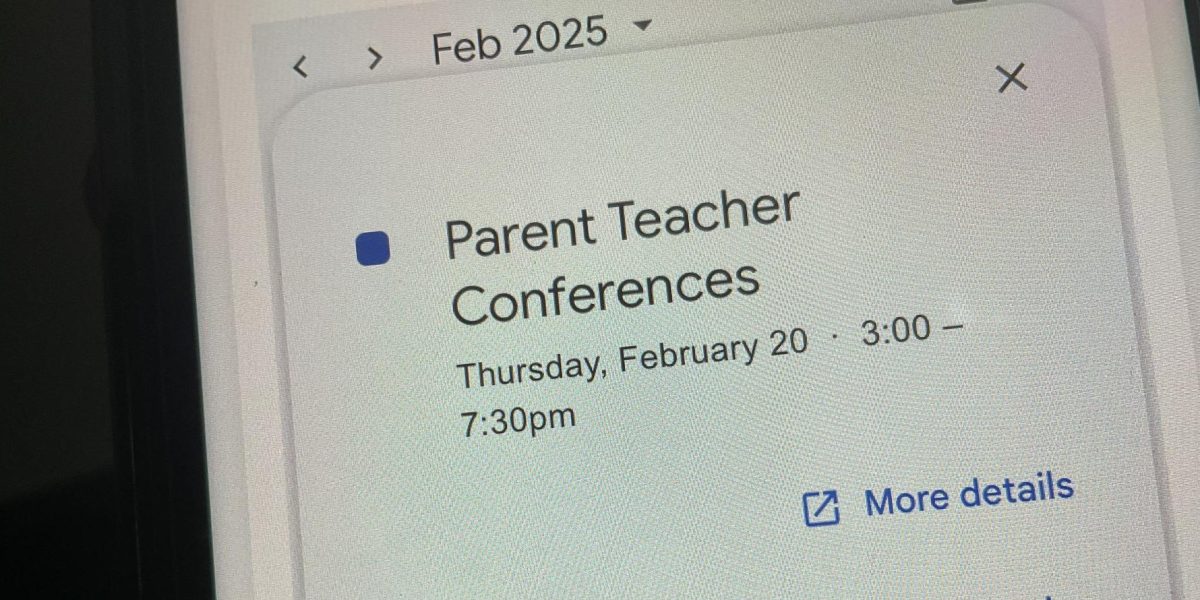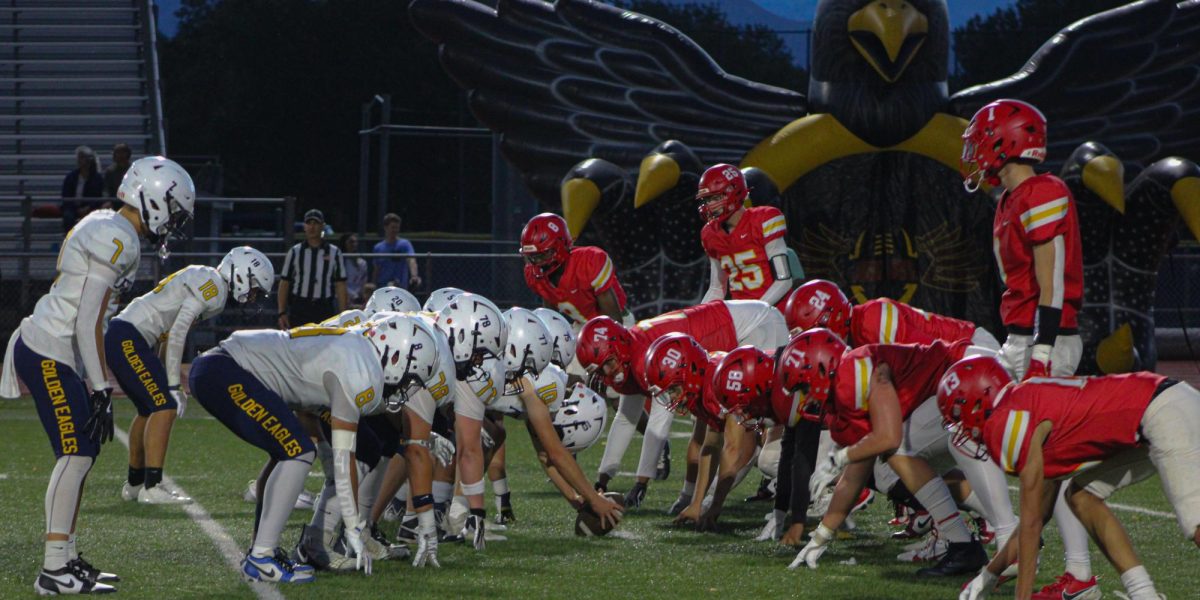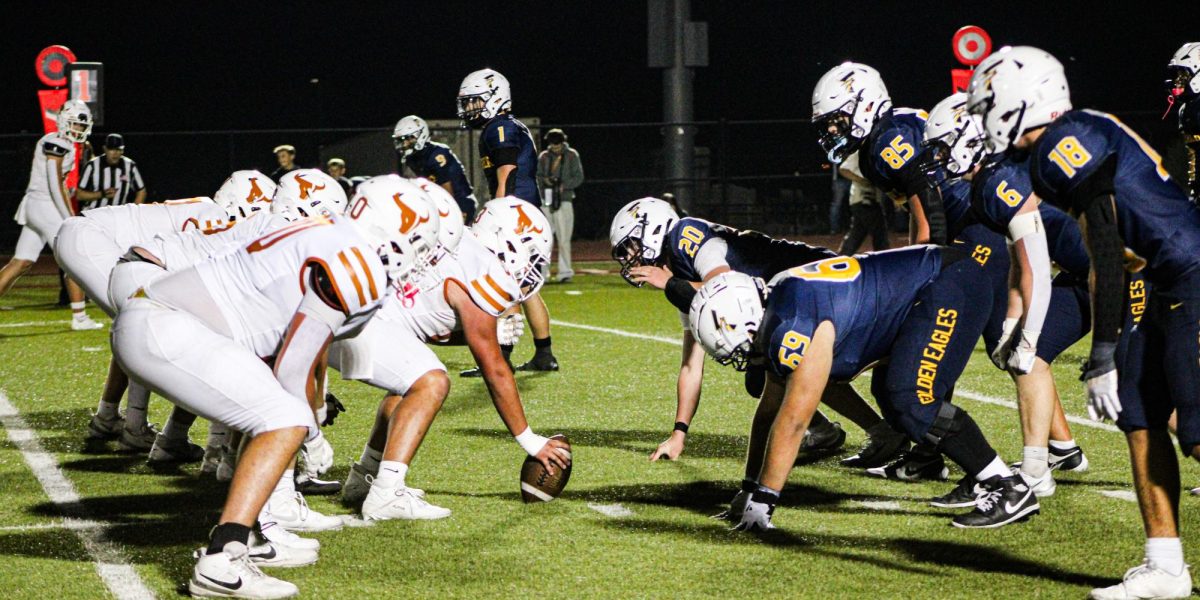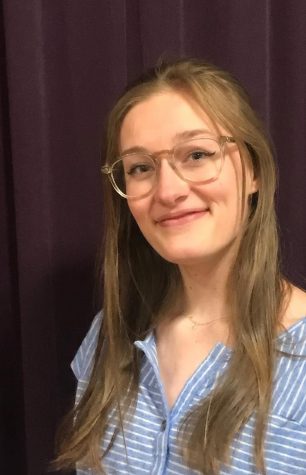The Show Goes On
After COVID-19 cancels the spring play, Frederick’s actors create a radio show
The logo for School for Scandal. What began as Frederick Theatre’s spring play has become a four-part radio series thanks to COVID-19.
April 24, 2020
COVID-19 has shut down the school building, delayed graduation, and has cost several students–as well as some parents–their jobs. Yet one of the most disruptive changes to students has been the cancelation of spring sports and activities. Any event that has a crowd has been axed until fall, from FBLA nationals to All-State Band to every sport in the spring season. Everything is canceled.
Everything, that is, but the spring play.
Now Frederick students and staff are certainly not foolish enough to defy the governor’s orders and the school board mandate just to perform School for Scandal, a modern twist on the 1775 Richard Brinsley Sheridan play. Make no mistake, the doors of the auditorium will remain closed. However, Frederick Theatre came up with an excellent alternative: record the show as a radio play and post it online.
Setting the Scene
School for Scandal started in late November, when Ms. Ferguson cast the play and Mr. Coon started to write the script. The story centers on Peter Teazel, a wealthy landowner who is having problems with his wife because all she wants to do is spread rumors with the worst of London’s society gossips. Meanwhile, Peter’s friend Oliver Surface has come from a plantation in India to assess if his nephews are worthy of the family fortune.
They chose the five-act comedy of manners for two main reasons: they wanted something that would make audiences smile, and they wanted a play they could change to fit their needs. “The original play only had twelve characters, but we expanded it to twenty-five,” Ms. Ferguson told us. “That way, we could involve as many people as possible.”
The reason they could do this is because the play is public domain, meaning it is out of copyright and that anyone can legally change and adapt it. Mr. Coon, who also adapted last year’s winter drama A Doll’s House, took the original script and set it in an American university. Peter Teazel became a dean, and The School for Scandal went from a parlor of rich white ladies drinking tea to a bratty student blog spilling it.
By March 12, rehearsals were in full swing and the first set blueprints were given to the stage tech class. Then activities were canceled and classes were temporarily suspended. The thirty-some students involved in School for Scandal learned that all the hard work they had put into the show might’ve been for nothing.
Freshman Giada DeJulio, who plays Mary Beth Perkins in School for Scandal, told us, “I was upset about the shut down because I love being on the stage.” Yet most of the cast and crew held out hope that the show could go on. “And it did,” Giada said. “I knew Ms. Ferguson and Mr. Coon would come up with an idea.”
A Change of Venue
“We had no clue what we were going to do.”
Mr. Coon spent the week after the shutdown frantically editing and posting articles for The Frederick Scout to keep the community informed while Ms. Ferguson looked into options to save the spring play. “We first thought of livestreaming the play, but we couldn’t have the students all together,” Ms. Ferguson said. “Then we thought of doing a staged reading to make up for the lost rehearsal time, but we would still have to have an audience.”
Ultimately, Mr. Coon stumbled on the solution. “While I was editing articles for the paper, we had I Love Lucy playing on the TV as background noise,” he told us. “Emily [Ferguson] was trying to figure out how students could film the play at home, and I suddenly remembered that I Love Lucy started as a radio show called My Favorite Husband. I played an episode for her and we both knew that this was the way to save the show.”
The pair proposed the change to the cast and crew over a Webex meeting, emphasizing that it would not be required and students who felt they couldn’t participate with everything going on right now didn’t have to. The cast responded with overwhelming excitement, as 85% of the original cast chose to continue on with the radio play.
“While there aren’t sets, costumes, props, or the interaction with the cast in a radio show, it does give us the chance to perform and in a way that was new to me,” said freshman Micah Whittler, who plays Drew Random. “Overall, I’m just very thankful for the opportunity to perform.” With some students stepping away from the play, Micah moved into a larger role. Others, like juniors Charles Juarez, were cast in multiple roles to make up for lost cast members. “I am a man of many voices,” he told us. “And it’s been pretty fun filling in as different characters.”
Behind the Curtain (Or Blanket)
While the School for Scandal cast loved the idea of recording the script and turning it into a podcast, making it happen was quite the challenge. First, Mr. Coon radically changed the script to make it fit radio: he took out all the visual jokes and added a narrator to help the audience understand changing scenes. He also expanded the two-and-a-half hour script to cover four hour-long episodes. “Episodes of a good radio show be around the same length and end with a bit of a cliffhanger,” Mr. Coon said. “This keeps it predictable yet entices the audience to come back the next week.”
As for recording the show, the cast meets through Webex to read through the script together. After the read through they each record their own individual audio and save it to a Google Drive folder where it can be edited together. Sophomore Will Greiner stepped up to be the project’s audio engineer and posted a list of rules for actors. You have to wear headphones. No background noises. If you mess up a line, say “Strike It” and try again. To cut down echos, be in a closet or prop up a blanket like a tent and record there.
Despite the various rules, the cast quickly got the hang of the technology. “I was very interested in how we were going to do the recording, and it has turned out to be a lot easier than I expected,” said freshman Ethan Noyes, who plays Benjamin Backbite. After everyone submits their recordings, Will then edits them together and adds sound effects to create the assembly cut. This cut goes to Ms. Ferguson and Mr. Coon, who make notes on timing to be adjusted and lines that need to be rerecorded for clarity. Once lines are fixed, Will polishes the audio, Ms. Ferguson adds the music between scenes, and Mr. Coon posts the episodes to Anchor.
“Between everyone, each episode takes 125 hours of work to produce,” Mr. Coon told us.
Some students were a bit intimidated by the idea of recording, while others thought it would be a breeze because of their stage experience. However, everyone learned that voice acting varies greatly from stage acting. “It’s not the same at all,” said junior Josilyn Cholas, who plays Kimberly Verjuice. “It’s way harder to do this because you can’t rely on your body or your face to tell the story for you.” The students learned quickly that voice acting is not just saying words into the mic but that it requires support and preparation. “I’ve learned that it is very important to warm up, drink lots of water, and to eat before recording,” Micah told us. “It is very crucial to be 100% on top of the vocal game because all aspects of the show–the setting, facial expressions, body language–have to be only portrayed through your voice.”
The Show(s) Go On
After a month of hard work, School for Scandal is about to see its long awaited audience. The production staff was careful to stagger each stage of the process to keep from rushing on the quality; this week, part four is being rewritten for radio, part three has been recorded, part two is being edited into an assembly cut, and part one is being polished for its release next week on Wednesday, April 29–the same week the original play would have premiered on stage.
“It has been an interesting experience and fun to work through,” said freshman Rylee Lorimer, who plays Sammi Little. “Everyone is being supportive and flexible with it.”
In fact, the success of creating School for Scandal inspired a side project. “Once we started recording, a bunch of my drama students who weren’t involved in the play and are currently bored at home wanted to be involved.” Ms. Ferguson asked Mr. Coon to come up with another radio show that was low commitment and easy to produce. “I went shopping for the week and saw a girl in a mask flirting with a male checker in a mask and it hit me. There are tons of small intimate stories going on during this pandemic, and a radio show would be the perfect way to capture them.”
He even came up with a name on the spot: QuaranTEEN.
Unlike School for Scandal, QuaranTEEN doesn’t have a ton of actors or one long story. Each episode contains two 15-minute stories with two to five characters in each story. “Each one is a small slice of life,” Mr. Coon said. “I’ve been talking with students and reading their writing about what’s going on in their lives right now, so we’ve been gathering ideas on how to honor and translate that experience to an audience.” The shorter form makes production quicker as well–it takes a third of the time to create an episode of QuaranTEEN than an episode of School for Scandal. While Mr. Coon has written the first two episodes himself, he and Ms. Ferguson hope that will change.
“QuaranTEEN is a really special project,” she told us. “It came from something the students wanted and asked for. The rotating cast allows for so many more students to be involved, many who would never go out for a regular play.” Also unlike a play, Ms. Ferguson enjoys watching students take more of an active role. “The kids do it all–they record it, they produce it, and hopefully soon they will write it too. All I really do is coach them.”
Yet for Ms. Ferguson, the best part about this project is the lesson the episodes have to teach. “Every story is about finding some kind of hope to hold onto in the middle of all this craziness. And for me and a lot of my students, the thing that grounds them and that they hold onto is this show. It really shows that everyone has their own story to tell.”
QuaranTEEN premieres today and will have a new episode every Friday through May and June. You can find it on Anchor.fm or right here, as the Frederick Scout has partnered with Frederick Theatre to distribute and promote every episode. School for Scandal premieres Wednesday, April 29 and can also be found here on The Frederick Scout.

